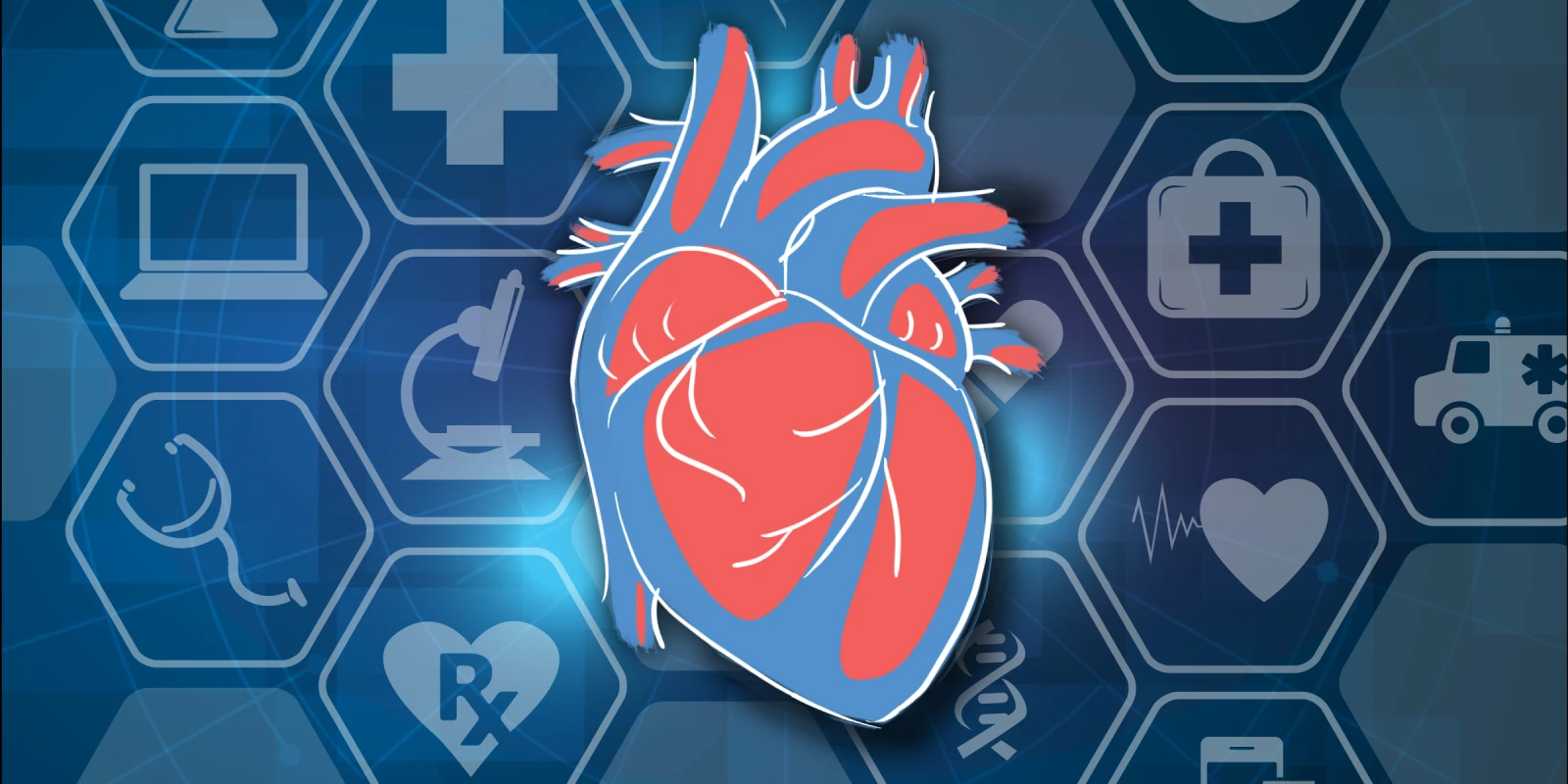
Providing quality and cutting-edge patient care is the ultimate objective for cardiologists. How they’re able to provide their best patient care is impacted by their workflows and their clinical perspectives on specific interventions, and cardiologists regularly share their insights in these topic areas on Doximity. In 2019, cardiology authors on Op-Med wrote most on health systems and clinical perspectives.
Topics Written About by Cardiologists
Op-Med articles published within 2019, written by Doximity physicians (MD and DO) who identified themselves as specializing in Cardiology on their Doximity profiles.
The following are articles cardiologists have published this year that have made lasting impressions on Doximity’s Op-Med readers:
Health Systems
Dr. Payal Kohli poignantly shares that “in cardiology, we literally work on the cusp of life and death every single day, and sometimes our patients unexpectedly cross from one side to the other within seconds.” Situations change frequently for cardiologists, and patient lives often hang in the balance based upon decisions a cardiologist makes. She reflects upon the broader health system issue of workflow breakdown/inefficiency that made a routine cardioversion nearly fatal. She contemplates questions like “Who should be the one to take responsibility for a patient? Would it change a patient’s outcome if computerized programs designed for more efficient workflows could algorithmically reduce potential patient complications?” Do you also suffer from the “checklist manifesto” era of practicing medicine that Dr. Kohli describes?
Why I Felt Guilty for Leaving Academics
Do cardiologists belong in academia or community practice? Dr. Adefolakemi Babatunde ponders this for herself and wrestles with guilt for ultimately choosing her calling to practice. However, the two are not mutually exclusive and she shares ways that they merge with one another, such as in teaching. She realizes that she enjoys what she does now, “rather than to chase the dreams others had for me.” The pressure to remain in academia is evident since an “unmet need to teach tomorrow’s teachers exists within the current infrastructure of cardiovascular medical training” (1). Do you share a similar experience? Where do you as a cardiologist see yourself making the greatest difference?
Clinical Perspectives
Clinical perspectives are the second most engaging topic/category for cardiologist writers, especially when they’re giving their perspective on a new intervention or medical technology. Cardiologists are often at the forefront of technology in health care and are frequently engaged in the latest innovations and guidelines (2). In fact, cardiologists typically use guideline directed medical therapies to a greater degree than non-cardiologists (3).
Cardiologists are seeing great results when applying digital health technologies. When utilized, a reduction in the number of hospital readmissions of up to 23% can be seen for patients (4). Through using virtual reality and AI (5), cardiologists are finding ways to enhance their patient care through personalized medicine. It’s no wonder cardiologists enjoy writing about their clinical perspectives on such technologies presented at conferences.
Algorithms, Apps, Wearables Galore at Inaugural Heart Rhythm 2019 Summits
The Inaugural Heart Rhythm 2019 Summit prompted Dr. Sanjaya Kumar Gupta to reflect on his experience. He appreciated the “thought-provoking opportunities to hear relevant perspectives on the role of technology in health care from people who are not clinicians.” Digital health was the main focus of this conference and highlighted different technologies and predictive tools to aid in detecting conditions like atrial fibrillation and heart failure.
Reflections on the Apple Watch Study: A Massive Screening Program or a New Health Fad?
Dr. Dustin Hillerson’s attendance at the AAC19 conference left him inspired to discuss the limitations of the Apple Watch study and wonder whether the health benefit of the Apple Watch justifies the cost. What digital health technologies do you think are practice-changing and worth implementing?
While cardiologists enjoy writing about their clinical perspectives on technology, they also enjoy discussing other specific interventions that patients may be using.
Fish Oil Study May Change Management of High Cardiovascular Risk Patients
Dr. Irving Loh writes specifically on his views about the enhancement of a study’s results that promote cardiovascular benefits based on a specific way fish oil is being manufactured. He implores clinicians to really understand the importance in the “details of the science, [so that] their at-risk patients will benefit.”
What topics do you feel strongly about, and what might motivate you to write and share your clinical perspective? Have you considered writing about your perspectives on Doximity’s Op-Med?
We Know What Cardiologists Write About, What Are They Reading?
While health systems and clinical perspectives are definitely topics cardiologists enjoy writing about, the topic of patient-physician relationships is the one most discussed. It is these relationships with patients that drive cardiologists to do more, and to do better — to use technology and other interventions in the most effective way possible to enhance the care they can provide.
The First Time I Asked for Divine Intervention with a Patient
Dr. Gerald Abreo’s article is one of the most engaging Op-Med articles in 2019. When all hope was lost, this doctor prayed with his patient, on two separate occasions, and called upon a very distinguished surgeon who reluctantly completed an exploratory surgery which ultimately saved this patient’s life. Because of this event, Dr. Abreo now has, “the courage to consider 'spiritual healing' for some of my patients, which almost always leads to emotional and sometimes physical healing.”
Are Cardiologists’ Interests Evolving?
It is evident that patient care is driving the tech boom in cardiology (6). It is also evident that cardiologists hold themselves to high standards when it comes to determining what interventions would be best for their patients.
As Op-Med continues to serve as a trusted platform for cardiologists to share their perspectives and experiences with one another, we look forward to seeing where the state of cardiology heads in 2020. What topics are you interested in reading (or writing) about?
References
- Alpert, C.M., Sinha, S. S., & Cullen, M. W. (2019). Teaching Tomorrow’s Teachers. Retrieved from http://www.onlinejacc.org/content/73/22/2900
- Hohman, M. (2019). 6 of the Most Talked-About Studies from World Cardiology Congress 2019. Retrieved from https://www.florence-health.com/specialties/cardiology/most-talked-about-studies-world-cardiology-congress-2019/
- Walter, K. (2019). Cardiologists Produce Better Outcomes in Treating Heart Failure. Retrieved from https://www.mdmag.com/conference-coverage/hfsa-2019/cardiologists-produce-better-o
- Arsene, C. (2019). 9 Cardiovascular Health Technologies Doctors Should Know in 2019. Retrieved from https://www.digitalauthority.me/resources/2018-cardiovascular-health-technologies-doctors/
- Hodes, S. (2019). AI is Bringing Cardiology into the Future. Retrieved from https://becominghuman.ai/how-ai-is-bringing-cardiology-into-the-future-a5217a4f29bd
- Farr, C. (2018). These young cardiologists are opening tech-infused health clinics all over New York. Retrieved from https://www.cnbc.com/2018/10/06/these-young-cardiologists-are-opening-heart-health-clinics-all-over-new-york.html
Article written and researched by Erin Mercer, MA, and Angelica Recierdo, MS.
Collage Illustration by April Brust






